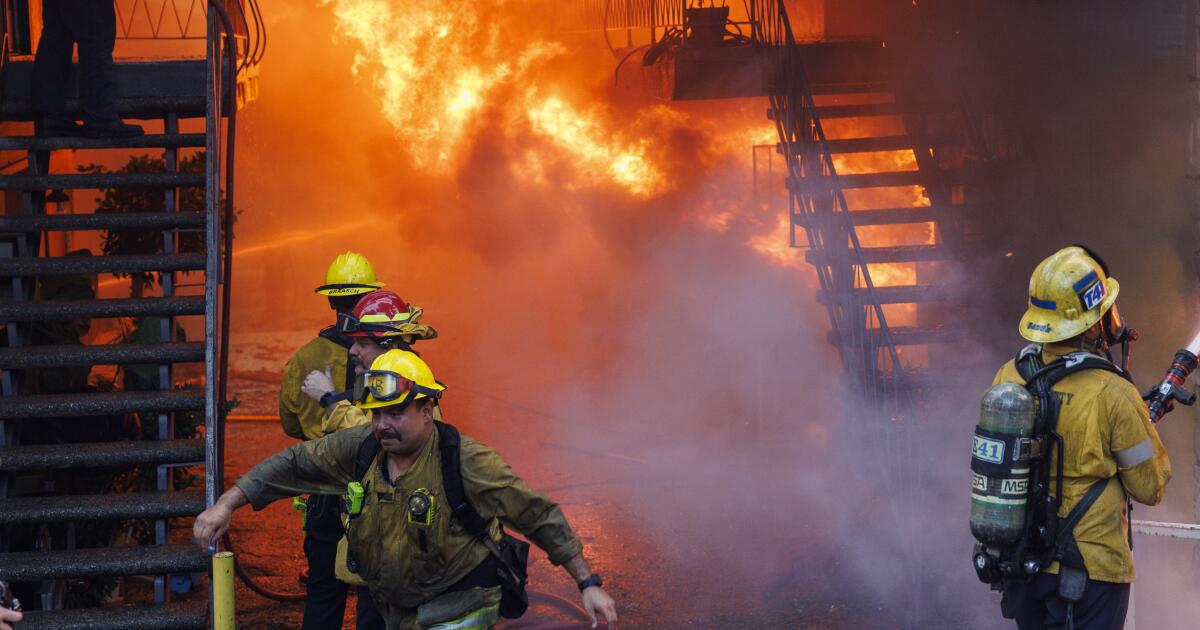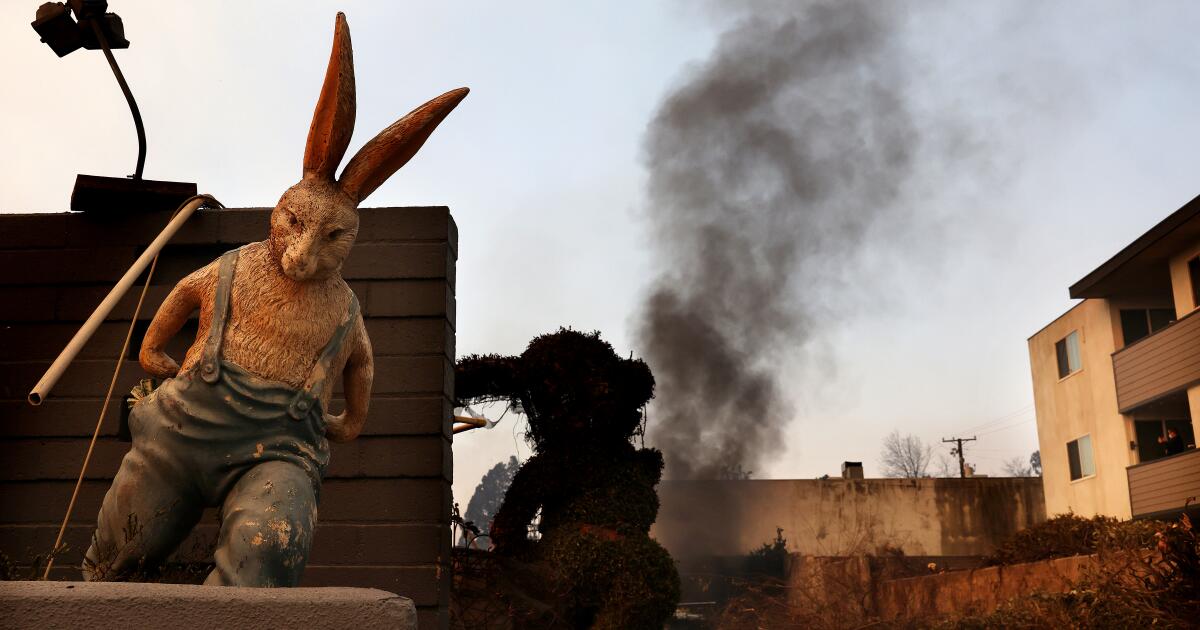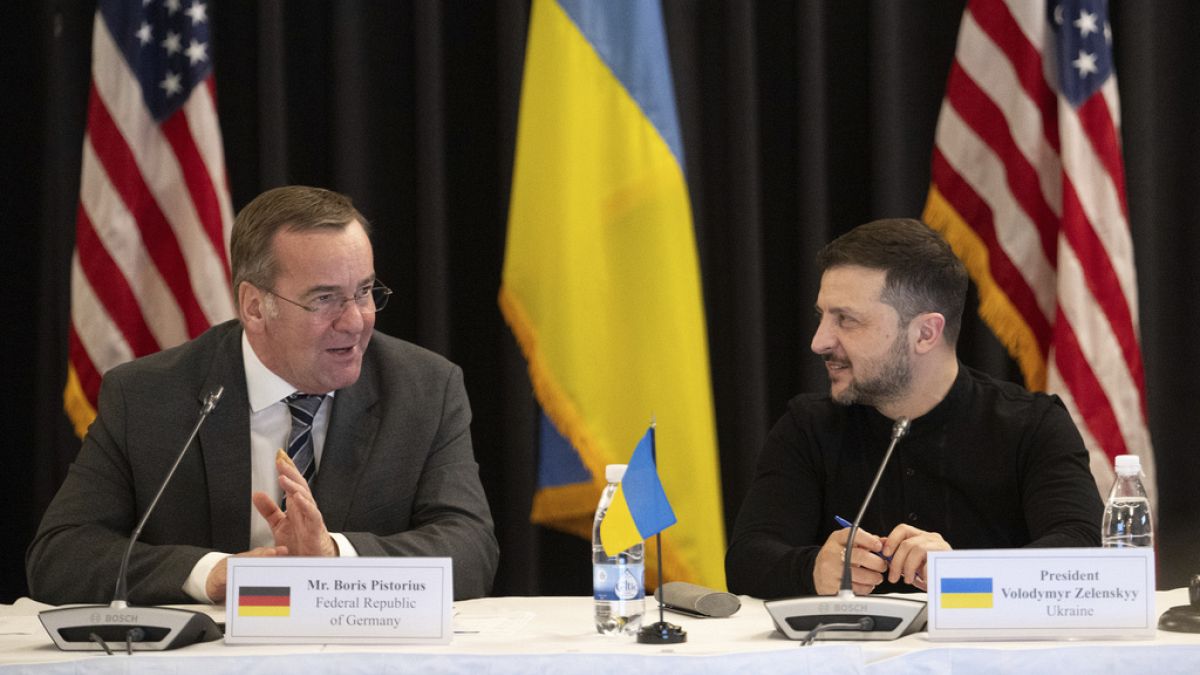Education
Robert J. Zimmer, Who Promoted Free Speech on Campus, Dies at 75

Robert J. Zimmer, a mathematician who as president of the University of Chicago championed diversity not only quantitatively, in the recruitment of students and faculty, but also by protecting free expression on campus with a protocol that was later embraced by dozens of colleges across the country, died on Tuesday at his home in Chicago. He was 75.
His wife, Shadi Bartsch-Zimmer, a classics professor at the university, said the cause was glioblastoma multiforme, a virulent form of brain cancer.
Mr. Zimmer, who presided over the university from 2006 to 2021, was instrumental in shepherding what became known as the Chicago Principles, a set of guidelines recommended by the Committee on Free Expression, a faculty group he appointed in 2014.
Those guidelines have become a bulwark against what critics perceive as the stifling of academic freedom by colleges where students are able to insulate themselves against discomforting viewpoints — practices that are often lumped together as “cancel culture.”
“Concerns about civility and mutual respect can never be used as a justification for closing off discussion of ideas, however offensive or disagreeable those ideas may be to some members of our community,” the faculty committee concluded.
In August 2016, during Mr. Zimmer’s presidency, the university informed incoming freshmen: “We do not support so-called trigger warnings, we do not cancel invited speakers because their topics might prove controversial, and we do not condone the creation of intellectual safe spaces where individuals can retreat from ideas and perspectives at odds with their own.”
Some campus critics suggested that Mr. Zimmer was motivated by complaints from conservative alumni. But, he told The Wall Street Journal, in responding to a national trend, he was upholding the university’s traditional values.
“What you’re seeing is a kind of drift of discourse,” he said. “You see actions by a lot of people which seem to indicate that they feel that they can, in fact, legitimately stifle the expression of others whose views they fundamentally disagree with.”
Daniel Diermeier, who was the university’s provost when Mr. Zimmer was its president and is now the chancellor of Vanderbilt University, said in an email: “Whether controversies over speakers, policies on disruptive conduct or his refusal to use the endowment for political purposes, the University of Chicago, under his leadership, remained committed to its principles during volatile times and a role model on free expression around the world.”
Mr. Zimmer was a prodigious fund-raiser. During his tenure as president, the university received six gifts of $100 million or more. He oversaw an increase in financial aid for undergraduates and the elimination of loans, as a way to enable students to graduate without debt.
He also initiated an engineering program; invested in graduate studies in humanities, social sciences and the arts; established the Urban Education Institute, which operates a public school in Chicago and conducts research on instruction; and opened satellite campuses in Beijing, Hong Kong and Delhi, India.
Applications to the undergraduate college more than tripled, to more than 32,000 in 2018 from fewer than 10,000 in 2006.
Robert Jeffrey Zimmer was born on Nov. 5, 1947, in Manhattan to Dr. Max Zimmer, a family practitioner in the West Village, and Harriet (Brokaw) Zimmer, who managed her husband’s medical office.
Growing up in a diverse neighborhood, he learned the value of tolerance. Having been raised in the McCarthy era, his son Benjamin said, “when there was one form of cultural suppression, when he saw a manifestation of that from another direction, he thought it was something he should stand up for, particularly at a university where it was part of its foundational ethos.”
After graduating from Stuyvesant High School in Manhattan, Mr. Zimmer earned a bachelor’s degree in mathematics from Brandeis University in 1968 and master’s and doctorate degrees, both also in mathematics, from Harvard University in 1971 and 1975.
“I actually started college as a physics major,” Mr. Zimmer once confessed. “I switched to mathematics when I tried unsuccessfully for 45 minutes to get an oscilloscope to show a sine wave.”
As a mathematician and an author, he specialized in “ergodic theory, Lie groups and differential geometry,” according to a university biography.
He taught at the United States Naval Academy from 1975 to 1977 and began teaching at the University of Chicago in 1977. He was named a full professor in 1980. He also taught for two years at the University of California, Berkeley.
At Chicago, he served as the chairman of the math department, the deputy provost for research and the vice president for research of the Department of Energy’s Argonne National Laboratory in Lemont, Ill., which the university oversees. From 2002 to 2006, he was a math professor and provost at Brown University. He then returned to the University of Chicago as its 13th president.
His marriage in 1974 to Terese Schwartzman, the former director of strategic initiatives for the Urban Education Institute, ended in divorce. In addition to his wife, Professor Bartsch-Zimmer, who is the director of the university’s Institute on the Formation of Knowledge and whom he married in 2011, and his son Benjamin, the chief executive of a biotechnology firm, Mr. Zimmer is survived by two other sons from his first marriage: David, a lawyer, and Alex, a filmmaker. He is also survived by a brother, Richard B. Zimmer; his mother, Harriet (who is 104 and still lives in the West Village apartment where Mr. Zimmer was raised); and two grandchildren.
At the end of the 2021 academic year, while recovering from brain surgery, Mr. Zimmer stepped down as president to become chancellor. He retired and was named chancellor emeritus in July 2022.
As a private institution, the University of Chicago was under no obligation to abide by the First Amendment’s guarantee of free speech. But, Bret Stephens wrote in a New York Times opinion essay in 2017, the real crux of Mr. Zimmer’s case for free speech, offensive or not, was that it was “our salvation from intellectual mediocrity and social ossification.”
According to Mr. Stephens, Mr. Zimmer balked at the notion that unfettered free speech would jeopardize the cause of inclusion because it might upset, among others, some of the people who were seeking to be included.
“Inclusion into what?” Mr. Zimmer had wondered in a speech that year. “An inferior and less challenging education? One that fails to prepare students for the challenge of different ideas and the evaluation of their own assumptions? A world in which their feelings take precedence over other matters that need to be confronted?”
For Mr. Zimmer, the mathematician, that kind of education wouldn’t count.

Education
Four Fraternity Members Charged After a Pledge Is Set on Fire

Four fraternity members at San Diego State University are facing felony charges after a pledge was set on fire during a skit at a party last year, leaving him hospitalized for weeks with third-degree burns, prosecutors said Monday.
The fire happened on Feb. 17, 2024, when the Phi Kappa Psi fraternity held a large party at its house, despite being on probation, court documents show. While under probation, the fraternity was required to “demonstrate exemplary compliance with university policies,” according to the college’s guidelines.
Instead, prosecutors said, the fraternity members planned a skit during which a pledge would be set on fire.
After drinking alcohol in the presence of the fraternity president, Caden Cooper, 22, the three younger men — Christopher Serrano, 20, and Lars Larsen, 19, both pledges, and Lucas Cowling, 20 — then performed the skit, prosecutors said.
Mr. Larsen was set on fire and wounded, prosecutors said, forcing him to spend weeks in the hospital for treatment of third-degree burns covering 16 percent of his body, mostly on his legs.
The charges against Mr. Cooper, Mr. Cowling and Mr. Serrano include recklessly causing a fire with great bodily injury; conspiracy to commit an act injurious to the public; and violating the social host ordinance. If convicted of all the charges, they would face a sentence of probation up to seven years, two months in prison.
Mr. Larsen himself was charged. The San Diego County District Attorney’s office said that he, as well as Mr. Cooper and Mr. Cowling, also tried to lie to investigators in the case, deleted evidence on social media, and told other fraternity members to destroy evidence and not speak to anyone about what happened at the party.
All four men have pleaded not guilty.
Lawyers representing Mr. Cooper and Mr. Cowling did not immediately respond to messages requesting comment on Tuesday. Contact information for lawyers for Mr. Serrano and Mr. Larsen was not immediately available.
The four students were released on Monday, but the court ordered them not to participate in any fraternity parties, not to participate in any recruitment events for the fraternity, and to obey all laws, including those related to alcohol consumption.
The university said Tuesday that it would begin its own administrative investigation into the conduct of the students and the fraternity, now that the police investigation was complete.
After it confirmed the details, the dean of students office immediately put the Phi Kappa Psi chapter on interim suspension, which remains in effect, college officials confirmed on Tuesday.
Additional action was taken, but the office said it could not reveal specifics because of student privacy laws.
“The university prioritizes the health and safety of our campus community,” college officials said in a statement, “and has high expectations for how all members of the university community, including students, behave in the interest of individual and community safety and well-being.”
At least half a dozen fraternities at San Diego State University have been put on probation in the last two years, officials said.
Education
Video: Several Killed in Wisconsin School Shooting, Including Juvenile Suspect

new video loaded: Several Killed in Wisconsin School Shooting, Including Juvenile Suspect
transcript
transcript
Several Killed in Wisconsin School Shooting, Including Juvenile Suspect
The police responded to a shooting at a private Christian school in Madison, Wis., on Monday.
-
Around 10:57 a.m., our officers were responding to a call of an active shooter at the Abundant Life Christian School here in Madison. When officers arrived, they found multiple victims suffering from gunshot wounds. Officers located a juvenile who they believe was responsible for this deceased in the building. I’m feeling a little dismayed now, so close to Christmas. Every child, every person in that building is a victim and will be a victim forever. These types of trauma don’t just go away.
Recent episodes in Guns & Gun Violence
Education
Video: Biden Apologizes for U.S. Mistreatment of Native American Children

new video loaded: Biden Apologizes for U.S. Mistreatment of Native American Children
transcript
transcript
Biden Apologizes for U.S. Mistreatment of Native American Children
President Biden offered a formal apology on Friday on behalf of the U.S. government for the abuse of Native American children from the early 1800s to the late 1960s.
-
The Federal government has never, never formally apologized for what happened until today. I formally apologize. It’s long, long, long overdue. Quite frankly, there’s no excuse that this apology took 50 years to make. I know no apology can or will make up for what was lost during the darkness of the federal boarding school policy. But today, we’re finally moving forward into the light.
Recent episodes in Politics
-

 Business1 week ago
Business1 week agoThese are the top 7 issues facing the struggling restaurant industry in 2025
-

 Culture1 week ago
Culture1 week agoThe 25 worst losses in college football history, including Baylor’s 2024 entry at Colorado
-

 Sports1 week ago
Sports1 week agoThe top out-of-contract players available as free transfers: Kimmich, De Bruyne, Van Dijk…
-

 Politics1 week ago
Politics1 week agoNew Orleans attacker had 'remote detonator' for explosives in French Quarter, Biden says
-

 Politics7 days ago
Politics7 days agoCarter's judicial picks reshaped the federal bench across the country
-

 Politics5 days ago
Politics5 days agoWho Are the Recipients of the Presidential Medal of Freedom?
-

 Health4 days ago
Health4 days agoOzempic ‘microdosing’ is the new weight-loss trend: Should you try it?
-

 World1 week ago
World1 week agoIvory Coast says French troops to leave country after decades














